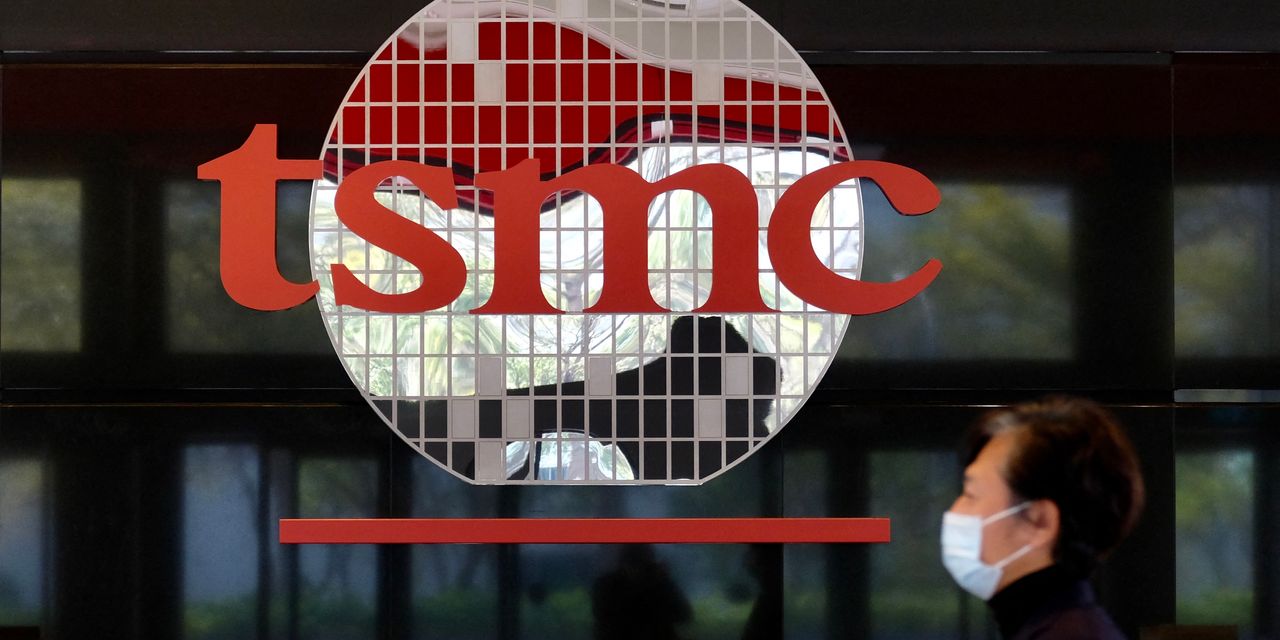Taiwan Semiconductor has poured cold water on hopes of a chip recovery again. The world’s largest contract chip maker is still grappling with a slump in demand for electronic devices, which is a poor sign for rivals such as
Intel.
Taiwan Semiconductor (ticker: TSM) is dominant in the market for high-end chips and its stock has been a beneficiary from excitement over artificial intelligence applications. However, for now it’s feeling the effects of a fall in purchases of smartphones and other devices as it reported its first annual decline in quarterly profit in four years on Thursday.
TSMC makes the main processors inside Apple (ticker: AAPL) iPhones, Qualcomm (QCOM) mobile chipsets, and processors made by Advanced Micro Devices (AMD).
“Our second quarter business was impacted by the overall global economic conditions, which dampened the end market demand, and led to customers’ ongoing inventory adjustment,” said Chief Financial Officer Wendell Huang in a statement.
American depositary receipts of TSMC were down 2.6% in premarket trading on Thursday, having risen 38% this year as of Wednesday’s close. Its chief U.S. rival
Intel
(INTC) fell 1%.
While TSMC is expected to eventually gain from the growth in AI chips, being a key supplier to
Nvidia
(NVDA), the market is still currently too small to offset weaker demand for smartphones and PCs. TSMC’s revenue from smartphones dropped 9% from the previous quarter.
TMSC said its second-quarter profit came to 181.80 billion Taiwanese dollars ($5.84 billion), down from 237.03 billion Taiwanese dollars for the same period in 2022. Revenue fell 10% to 480.84 billion Taiwanese dollars. Revenue in U.S. dollars was $15.68 billion, down 14% from the same period last year.
TSMC said it expects third-quarter revenue between $16.7 billion and $17.5 billion and an operating profit margin between 38% and 40%.
“Moving into [the] third quarter 2023, we expect our business to be supported by the strong ramp of our 3-nanometer technologies, partially offset by customers’ continued inventory adjustment,” Huang said.
TSMC reiterated its forecast for capital expenditure to be at the lower end of a previously forecast range of $32 billion to $36 billion, as it continues its investment in Arizona. TSMC is facing a challenge in chip manufacturing from Intel, which is hoping its strategy of placing its sites around the globe could attract clients nervous over the future of Taiwan, which China regards as a breakaway province that it intends to unify with the mainland.
Write to Adam Clark at [email protected]
Read the full article here



